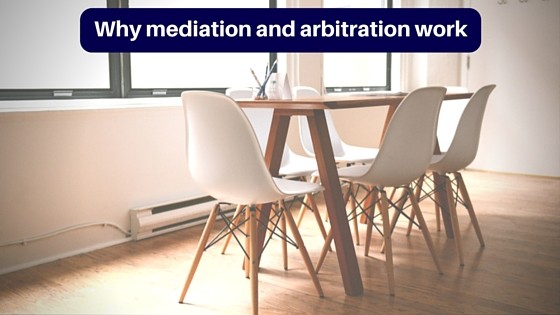
Now that we have explored the two main forms of alternative dispute resolution (“ADR”), let’s examine why ADR may be more desirable than traditional litigation.
Time
One of the main benefits of ADR is the time it saves all parties. Let’s use a straight forward personal injury case where the injured party has completed treatment as an example. Such a case commenced in Massachusetts Superior Court is unlikely to be tried in less than 18 months. Alternatively, a mediation or arbitration can be scheduled in a matter of weeks. This expedited resolution benefits both the injured party (who gets compensated quickly) and the insurance company (whose adjuster can close their file). It negates the need for lengthy discovery that may not reveal anything new and simply runs up litigation costs for both sides. Further, the parties can choose where and when their case is mediated or arbitrated, thereby conserving substantial travel time.
Cost
ADR in the early stages of a case has the benefit of significant cost savings. If liability, injuries and resulting medical records and bills are straightforward, there is little benefit to lengthy discovery (depositions, subpoenas, etc.) associated with traditional litigation. A deposition transcript alone can cost in excess of $1,000, which will need to be paid by the injured party through their settlement proceeds and the insurance company up front. Expert witness fees can easily exceed $5,000. Litigants can save these costs by participating in early ADR, resulting in more money going to the injured party and less expense for the insurer.
Control of Case
Whether your case is tried before a judge or jury, there is no guarantee as to the outcome. Indeed, juries in Massachusetts have a reputation for rendering low awards (or outright defense verdicts) in many personal injury cases, regardless of liability or level of damages. In alternate circumstances, juries can award multi-million dollar verdicts in a seemingly low-damages cases.
ADR takes some of the risk out of case resolution. Except for limited circumstances, the parties have control over who mediates or arbitrates their case. In mediation, the parties usually have the ability to withdraw whenever they choose without penalty (although experience shows that a good-faith effort and dedication toward resolution from all sides can often settle even the most difficult cases). In arbitration, the parties can establish high-low parameters (for example, the insurer would not have to pay more than $50,000 and the injured party would not receive less than $10,000) thereby guaranteeing, to a limited degree, the outcome. ADR removes some of the uncertainty (and resulting stress) associated with traditional litigation and keeps the parties in control of their case as much as possible.
ADR is an attractive method of cost-effective, time-saving case resolution. Litigants enjoy far greater control over who, when, where and how their case is decided when they proceed with ADR over traditional litigation. While not every case is a candidate for ADR, most matters can be resolved through this process. We encourage litigants to consider ADR and the many benefits it has in resolving disputes between parties. If you are looking for mediation and arbitration resources, we encourage you to learn more.


